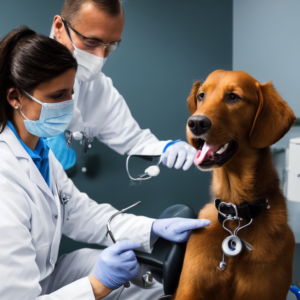Our pets are not animals, but family. They too, like ourselves, are capable of having various medical conditions that when neglected may either cut their life or diminish their life quality.
When pet owners learn about the Common Pet problems, they will be able to care for their pets and avoid health-related complications in the future and give their pets joyful and long lives.
We will discuss the common pet health issues in this blog, ways to identify them, and how to avoid them. To get more detailed tips of taking care of your pets, visit Animals Pet Health.
Why Pet Health Awareness Matters
Suppose that you have a friend who is unable to tell you when he is in pain. This is precisely the case with pets.
They are unable to speak and therefore they depend on us to tell them when something goes awry. The first measure of ensuring that pets stay safe and healthy is by being informed of their health.
Top Common Pet Health Issues to Watch For
Fleas and Ticks
Fleas and ticks are not only a nuisance, but also contagious (they carry diseases), very itchy (and even allergic), and sometimes anaemic. Major here is preventive treatments.
Obesity in Pets
One of the most common pet issues that is rapidly increasing is obesity. Exercise and overfeeding may cause diabetes, arthritis and cardiac diseases.
Dental Problems
It is not normal that pets have bad breath. Dental disease may lead to pain, loss of tooth and transmission of infection to other vital organs.
Ear Infections
Cats and dogs with floppy ears are more vulnerable to ear infections. Observes scratching, shaking of the head or foul odor of the ears.
Skin Allergies
Allergies may result in itching, redness and loss of hair. Typically, food, pollen, and bites of fleas provoke it.
Diabetes in Pets
Yes, pets can get diabetes too. It is usually associated with overweight and unhealthy eating. The symptoms are excessive urination, thirst, and weight loss.
Arthritis and Joint Issues
The elderly pets are normally affected by arthritis that causes stiffness and decreased movements. This can be assisted with joint supplements and weight management.
Digestive Disorders
Digestive disorders may be indicated by vomiting, diarrhea or lack of appetite. These might be food intolerances and severe diseases.
Respiratory Problems
Coughing, difficulty breathing or nasal discharge can be signs of infection or chronic respiratory disease.
Heartworm Disease
Heartworm is a severe preventable infection spread by mosquitos. Routine preventive medicine is necessary.
How to Identify Common Pet Problems Early
Behavioral Changes
When your pet is quiet, aggressive or withdrawn it may be uncomfortable or ill.
Physical Signs
Watch to see whether the weight changes, whether or not the appetite decreases, whether or not the skin is excessively scratched, whether or not the eyes or nose have an abnormal discharge.
Routine Checkups
Never skip vet visits. Frequent checkups help in detection of issues in health before it is life threatening.
Preventive Care Tips for Pets
Balanced Nutrition
Give pets good food depending on their breed, age and health status.
Regular Exercise
As human beings, pets also require exercise in order to remain fit and prevent obesity-related diseases.
Vaccinations and Preventive
Bring your pets to a vet and prevent fleas, ticks, heartworm, and contagious diseases.
Hygiene and Grooming
Shampooing, brushing, and nail clipping can reduce the risk of infection.
When to Visit the Vet
When your pet displays consistent symptoms such as vomiting, limping, or sudden behavioral change it is time to get the vet on the phone. Wait, and it may save the life of your pet.
Home Remedies vs Professional Care
Home treatment is possible to some causes such as a dry skin and a mild stomach ache. Nevertheless, when the condition progresses or continues professional veterinary care must not be used in its place.
The Role of Diet in Preventing Common Pet Problems
Put simply, healthy diet is the cornerstone of the prevention of the Common Pet problem.
Whether it is control of weight and immunity, aiding digestion and dental hygiene among other things, what your pet eats has a direct effect on their well-being.
When you feed them, you are not just feeding them, you are providing them with the greatest opportunity to live a longer, healthier, and happier life. Feeding them the right kind of food that suits their age, size and health requirements.
To get additional information on pet care and nutrition tips, go to Animals Pet Health.
Mental Health in Pets: An Overlooked Aspect
Pets are stressed, anxious and even depressed. Emotional struggles can be caused by a lack of play or loneliness or alterations in the environment.
Senior Pet Health Challenges
Seniors are prone to arthritis, kidney disease or cancer. Frequent screening and special diets are important to elderly pets.
Seasonal Pet Health Concerns
Summer: heatstroke and dehydration.
Winter: Freezing and dry skin.
Spring/Fall: Peanuts and parasites.
Creating a Pet-Friendly Environment at Home
Safety and elimination of poisonous plants, provision of adequate toys and interest to keep pets active and healthy.
Conclusion
Raising pets is not just about holding and playing. Recognition of common pet health issues and preventive steps to animals will contribute to them living longer and healthier lives.
From fleas to obesity, dental disease to diabetes, you can always detect warning signs early in your pet.
Remember that your pet is depending on you to be reasonably healthy and balanced; so be knowledgeable, be prepared and love, the way your pet should be loved.
Animals Pet Health provides some further recommendations and expert advice.
FAQs
What are the most common over-the-counter pets?
Your animal could be afflicted by various medical issues including fleas diabetes dental problems ear infections and arthritis
What can I do to keep my pet healthy?
The most protection from illness is proper diet and amount of exercise..
What do I do to know where my pet is overweight?
You can easily feel the ribs of your pet and observe that it is not as active as it should be; this means that it is overweight.
Is my pet subject to stress?
Yes, stress may cause behavioral change, digestion problems, and low immunity.
What is the frequency with which should I go to the vet with my pet?
At least annually in the case of healthy pets, and more often with the elderly or the chronically ill.

















